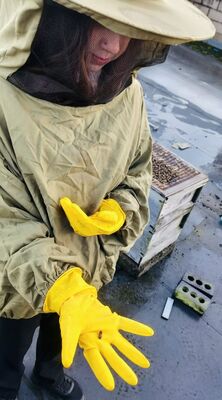DÚLRA’S friend was in Donegal on a break this week – and heard something he hadn’t heard for many decades: A cuckoo’s call.
And not just one. It seemed they were all around him everywhere he went in the Inishowen Peninsula.
And so Dúlra, with memories of that most famous of all bird calls ringing in his ears, decided on Tuesday to venture into the wilderness in search of it. Slievenacloy – Sliabh na Cloiche, the Mountain of the Stone – should be the perfect habit. A nature reserve not far above Poleglass, it's more of a hill than mountain, with the gentle contours belying a harsh environment overlooking Lough Neagh in the distance.
Ulster Wildlife bought the land decades ago after the rare marsh fritillary butterfly was reported here, otherwise today it could well be a conifer forest, a quarry or a dump – like most of the surrounding land. Today it encompasses almost 500 football fields in size, with the stated aim of encouraging a species-rich landscape of wildflowers.
Nature is a complicated balancing act which humans can never get right despite even the best efforts of dedicated environmentalists. In promoting one species, we harm another. But in recent years an answer – in Dúlra’s opinion the correct answer to the question of how to truly help nature – has bubbled to the top: rewilding. Just let nature take care of itself and all will be well.
Slievenacloy was its usual lovely self. You’d rarely see another sinner here during the week. Sit still – or lie still – on the grass and you’ll soon blend into the landscape like it has swallowed you up. Like all the Belfast Hills, long denuded of forest, this is the domain of the humble meadow pipit. They’ve got a fancy name, but these plain brown birds are more like sparrows of the grasslands, where they hide their nest expertly on the ground. Those nests are almost impossible to find – unless you’re a cuckoo.
Because the meadow pipit is the cuckoo’s favourite host. It’s hardly an honour – in fact it’s the ultimate curse. The poor parents will be none the wiser when the cuckoo – cuach in Irish – lays its single egg and they'll incubate it with their own. If the cuckoo hatches before the pipits, it will roll the eggs out of the nest. If the pipits hatch before the cuckoo, the larger bird will turf them out in the same way. And a fertile mother cuckoo can lay an amazing 25 eggs - wiping out a whole generation of local pipits.
After just 14 days, the baby cuckoo will be three times the size of the parent pipits, but they still treat it like their own, struggling to bring it enough food to fill its stomach. They’ve given birth to Frankenstein’s monster, but a parent’s love is blind and unconditional (and Dúlra is thankful for that himself).
With so many meadow pipits, Slievenacloy should be perfect cuckoo territory. But despite Dúlra concentrating on every sound, near and far, that famous call which travels miles was not heard.
In fact, during the two hours Dúlra spent on the hillside, the birdlife seemed to have been degraded. He didn’t see a wheatear or stonechat, both common in the past, and with cattle grazing in many areas, you can forget about providing a nesting area for bigger, ground-nesting birds like snipe or curlew.
The spot where Dúlra recently found a sedge warbler’s nest is now deserted. There were no signs of any birds of prey overhead – they’ve gone elsewhere to hunt. The fields behind the hedgerows are well fenced off, but even so, when Dúlra gazed in, he saw a pram, paint tins and an ottoman. How some people treat this nature reserve must be heartbreaking for the Ulster Wildlife workers here.The cows on Slievenacloy are native Irish Moiled, a rare small and friendly breed saved from the brink of extinction by farmer Michael Maherg, a keen environmentalist himself. They seem to fit into the windswept landscape here as perfectly as the meadow pipits, roaming the land like they did centuries ago.
Cuckoos have been heard on Black Mountain this year by nature expert Aaron Kelly, but years ago, you didn’t have to go on to the mountain to hear its famous call, it echoed down Dúlra’s street in Andersonstown from the mountain itself. Others would call from the fields near Colin Glen, the sound drifting down Glen Road.They’re a hard bird to spot – Dúlra once watched one skulking across an old quarry face on Colin Mountain, obviously looking for a victim’s nest.
Today, there are fewer than 3,000 pairs in Ireland and fewer and fewer arrive every spring. It might be good news for the meadow pipit, but it’s a tragedy for new generations of Belfast youngsters who may never hear that famous call.
Unless they go to Donegal.
• If you’ve seen or photographed anything interesting, or have any nature questions, you can text Dúlra on 07801 414804.






